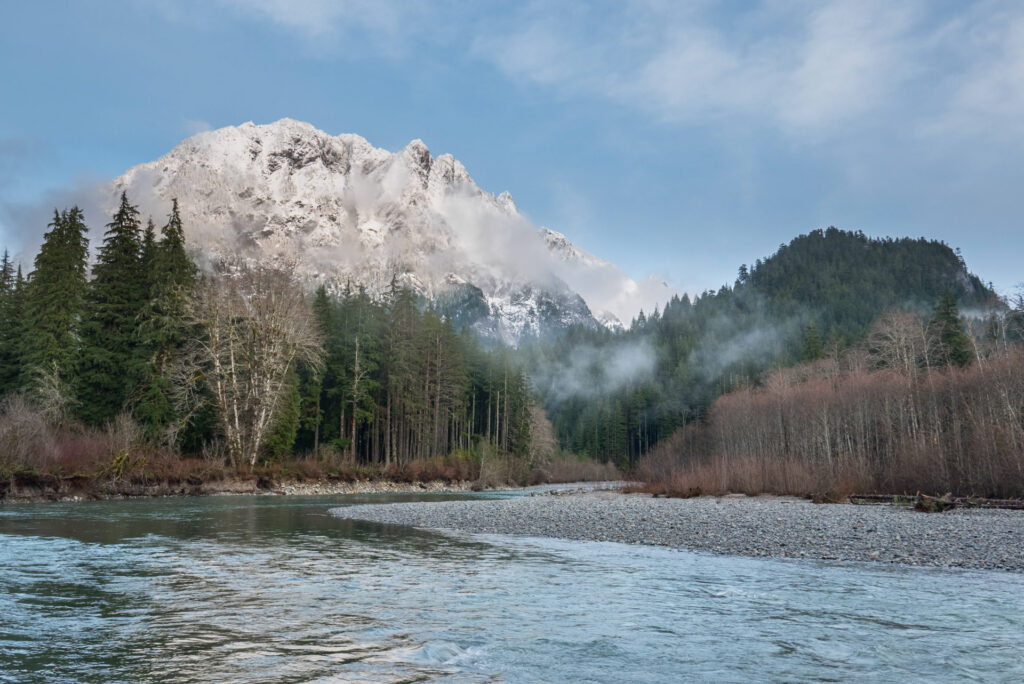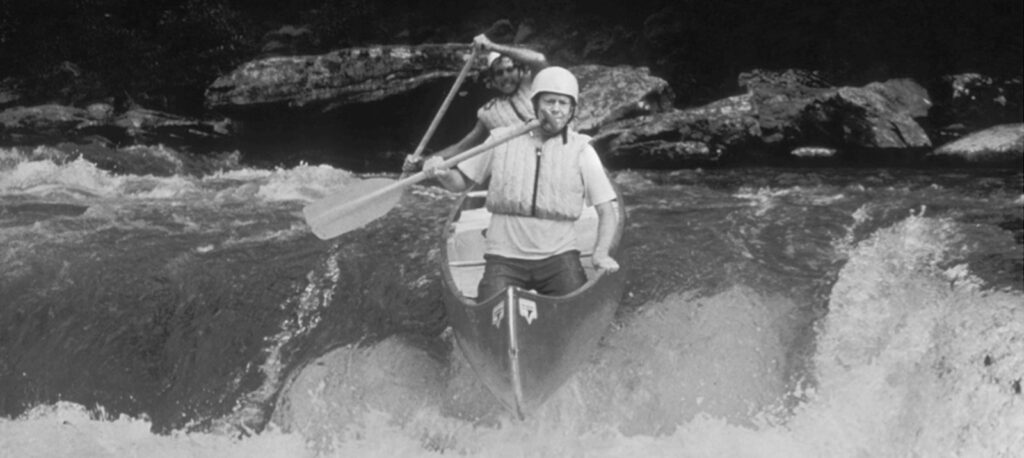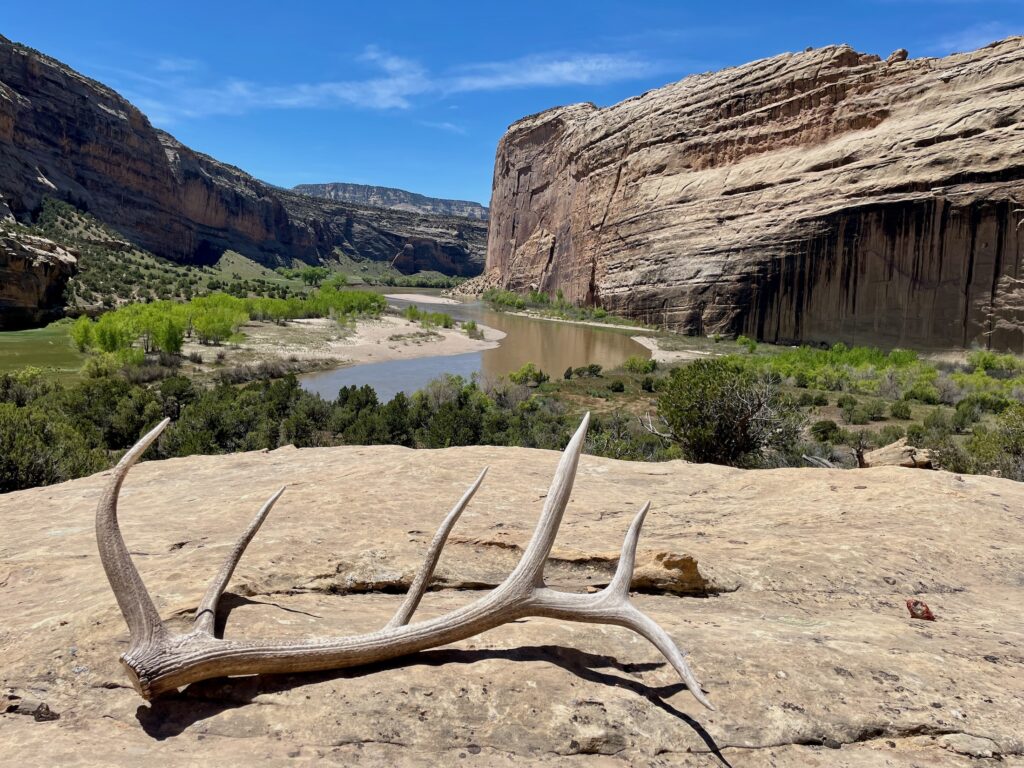What Do Rivers Give Our Children?
Can we use our Wild and Scenic Rivers to better understand our children?
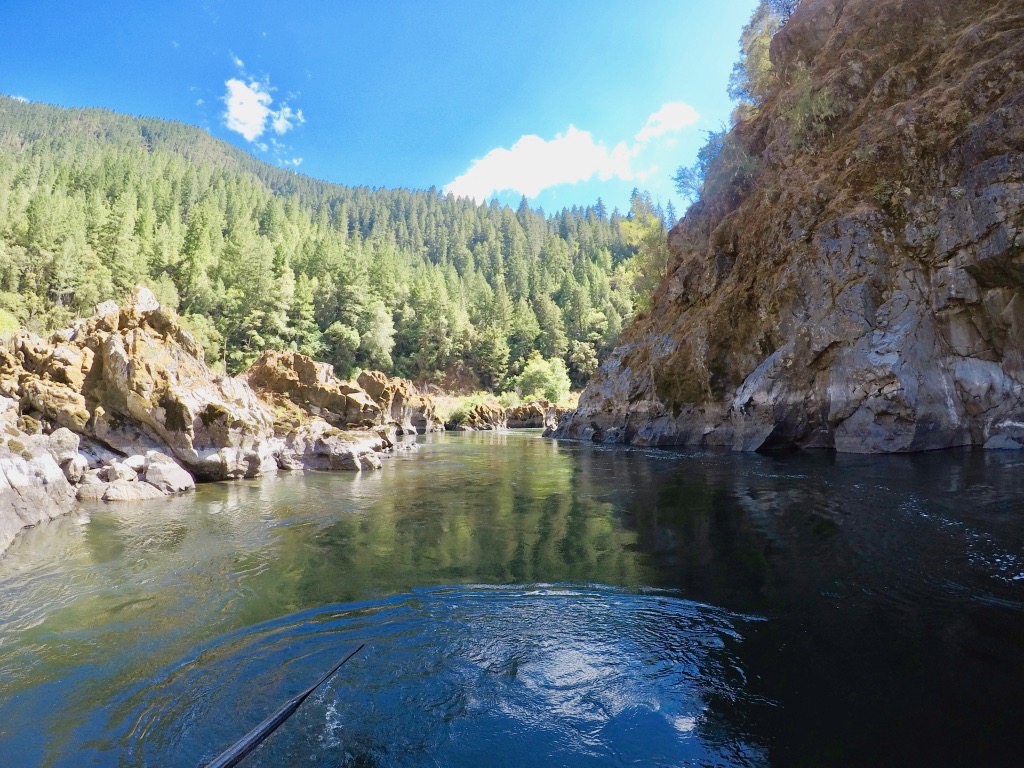
This is a guest blog by Ron Smith, Editor in Chief at The Digital Outdoorsman.
People use to call it the need to “decompress,” “get away,” “clear your head,” “unwind,” and “time-off.” When these terms were used in conversations they were being applied to adults. As we know times have changed and continue to change at an even more accelerating pace, these various terms are now often combined into the modern need to “unplug” and it’s a term that is not only used relative to adults but to our children.
The use of the term today refers to “disconnecting from something.” For our children, it means disconnecting from their phones, wristwatches, gaming devices and any other device that connects them to the Internet or communicating using a device rather than in person. Not only is the connection to these gadgets a challenge for their growth, our children are spending less time in the outdoors. It’s a serious challenge with significant ramifications.
According to a 2015 study by Common Sense Media, American youth between the ages of 8 – 18 on average are logging 7.5 hours of screen time per day, and that’s not counting time spent using media for school or homework. Richard Louv has explored the growing gap between children and outdoors. In his 2005 book, Last Child in the Woods, Richard Louv he discusses the disconnect and how it impacts their physical and emotional health. His research indicates that the large growth in childhood depression, obesity and inability to focus can be attributed to children spending so much time indoors.
We are especially failing our girls. Parents are four times as likely to tell girls than boys to be careful (according to a 2015 study in The Journal of Pediatric Psychology). Girls are warned away from activities that hint of risk. Parents are more likely to assist their sons to face their fears with instructions on how to complete the task on their own. We need to teach both boys and girls the skills they need to be confident, responsible problem solvers and risk takers.
That being said, my challenge as a parent is how do I execute to achieve this goal? How do I help them grow up loving the outdoors? What steps can I take to foster this love? How do I bridge from the reality that like me, many parents today will be the last generation to have grown up without being “plugged into the internet” as a child?
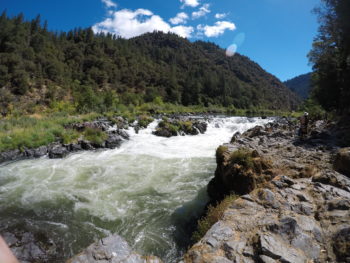
Rapids on the Rogue River, photo by Ron Smith
Recently as part of my personal effort to celebrate the 50th anniversary of the Wild & Scenic River Act, I arranged for my 13-year-old daughter and me to go on her first multi-day river trip. I chose as our destination the Rogue River and its 46-mile wild & scenic section. We would raft for three days, camp out for two nights, and take all our own equipment for camping.
Our guides were terrific. Our group of 18 was great and one other youngster was along, a boy in high school. We also were fortunate to have Bob Rafalovich as one of the guides. Bob has guided for 44 years on the Rogue. He founded the original outfitting company on the Rogue and he worked with government agencies to implement the Wild & Scenic Act on the Rogue. He was filled with stories and insights few others have.
We floated, we ran rapids, we hiked, we saw Zane Grey’s original 1939 cabin, we spent time at a true swimming hole up a side creek, we jumped off boats, swam in the river, saw black bears, shared stories with others, watched the Perseid meteor shower, learned about new flora and fauna, and Kira got to try rowing leading up to her taking the boat through a class 2 rapid.
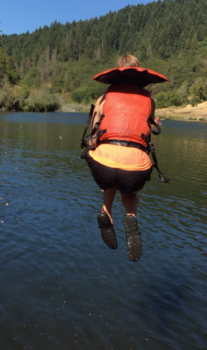
Never get tired of jumping, photo by Ron Smith
What did she learn? Here’s what she highlighted.
- Anything is possible but you have to be brave enough to try
- How to deal with initial failure and turn it into success with perseverance
- How to take risks and be more confident in taking them
- The value of patience
- The ability to be honest with each other and to laugh at ourselves
- To allow yourself to feel fear and let it pass through you
- It important to have a positive attitude in order to succeed
- Moving forward is the only option you have
- The most important things in life are personal relationships and a wanting to grow
- Liked not being tethered to her phone and free to really focus on where she was and what she was doing
- And there is only one person responsible for living the life you want; You.
The river provided me with a means to connect with my daughter, before, during and after the trip we took on it. The river gave us the means to create memories, stories, and experiences to help us grow as father-daughter and as individuals. We need to provide opportunities to our children and support the organizations that help with accessing those opportunities.

